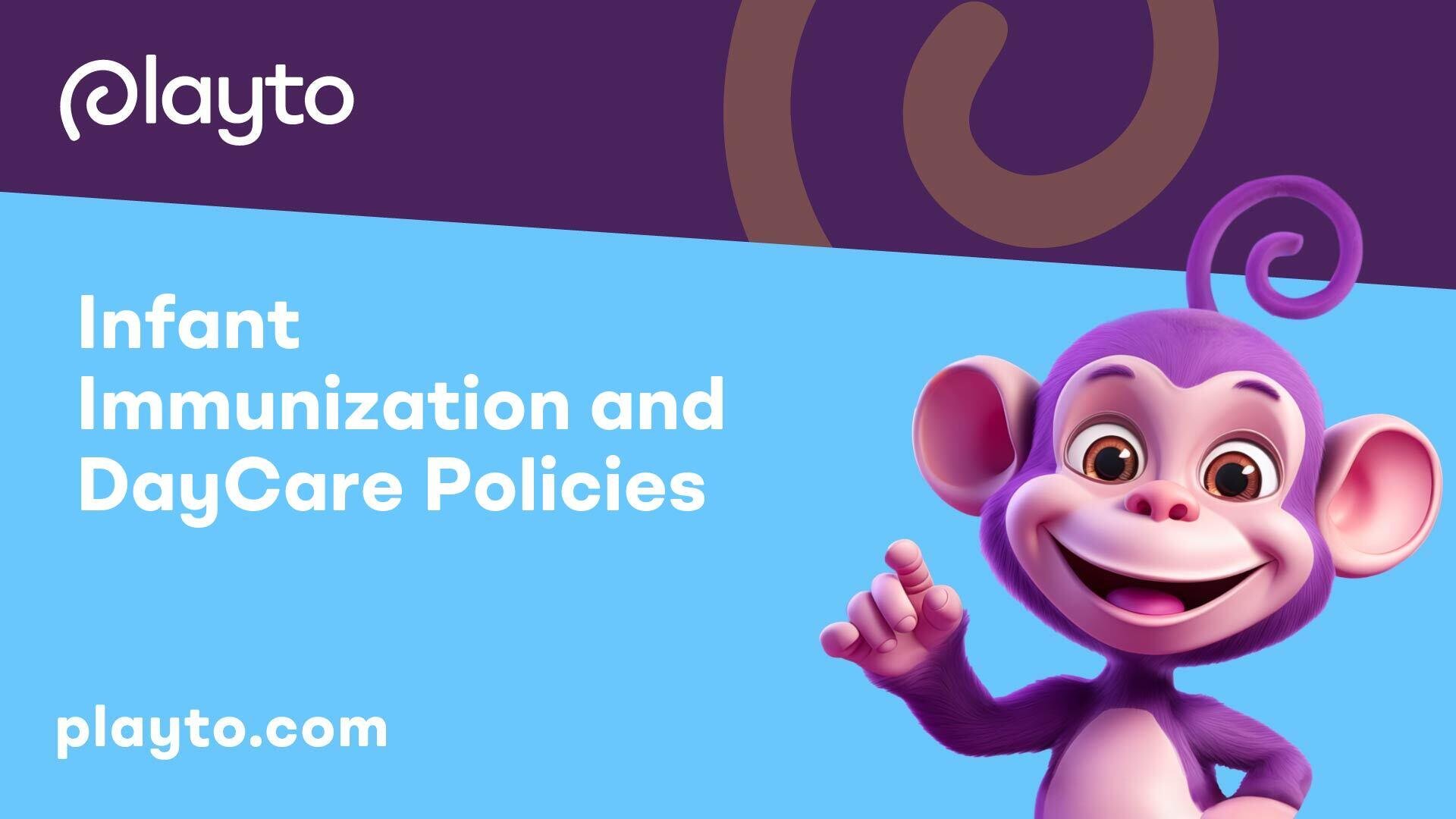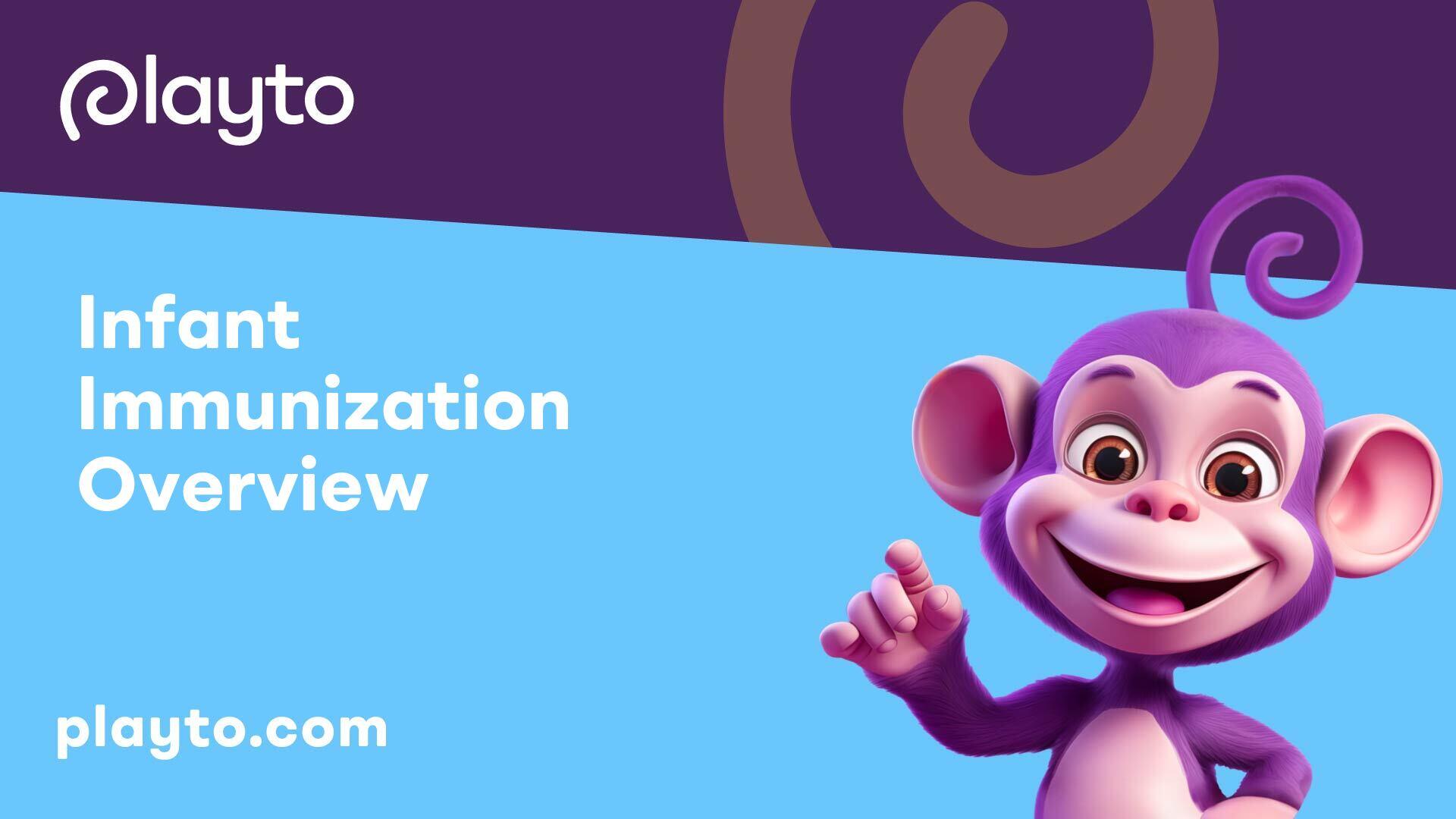
Infant Immunization Overview
Ensuring the timely immunization of infants is paramount to safeguarding their health and well-being. Understanding the importance of infant vaccination is crucial in protecting young children from potentially serious and life-threatening diseases. Vaccines are widely regarded as one of the safest and most effective ways to prevent infectious diseases, providing infants with immunity without exposing them to the symptoms of the diseases.
Importance of Infant Vaccination
Vaccines are rigorously tested and proven to be safe, making the choice to vaccinate an integral part of responsible parenting. The decision to delay or forgo infant vaccinations can pose significant risks. Waiting to gather more information before vaccinating can lead to unforeseen consequences, as the risks of not vaccinating far outweigh any potential unknowns [1]. Vaccinating infants not only protects them but also helps create herd immunity, safeguarding those who cannot be vaccinated due to health reasons.
Risks of Delaying Vaccines
Delaying vaccines can potentially leave infants vulnerable to preventable diseases. The lack of understanding of the risks and benefits of vaccines may lead to misconceptions about their safety. It's crucial to not underestimate the importance of timely vaccination, as vaccines play a pivotal role in controlling the risk of disease and preventing outbreaks. Opting out of infant immunization can increase the risk of children contracting diseases that could have been prevented through vaccination (CHOP Vaccine Education Center), potentially leading to severe health complications.
By prioritizing infant vaccination, parents can take proactive measures to protect their children and contribute to the overall health and well-being of the community. Seeking guidance from healthcare providers and credible sources is essential to make informed decisions about infant immunization. It's crucial to understand that vaccines are designed to provide immunity against diseases without exposing infants to the risks and symptoms associated with the illnesses.
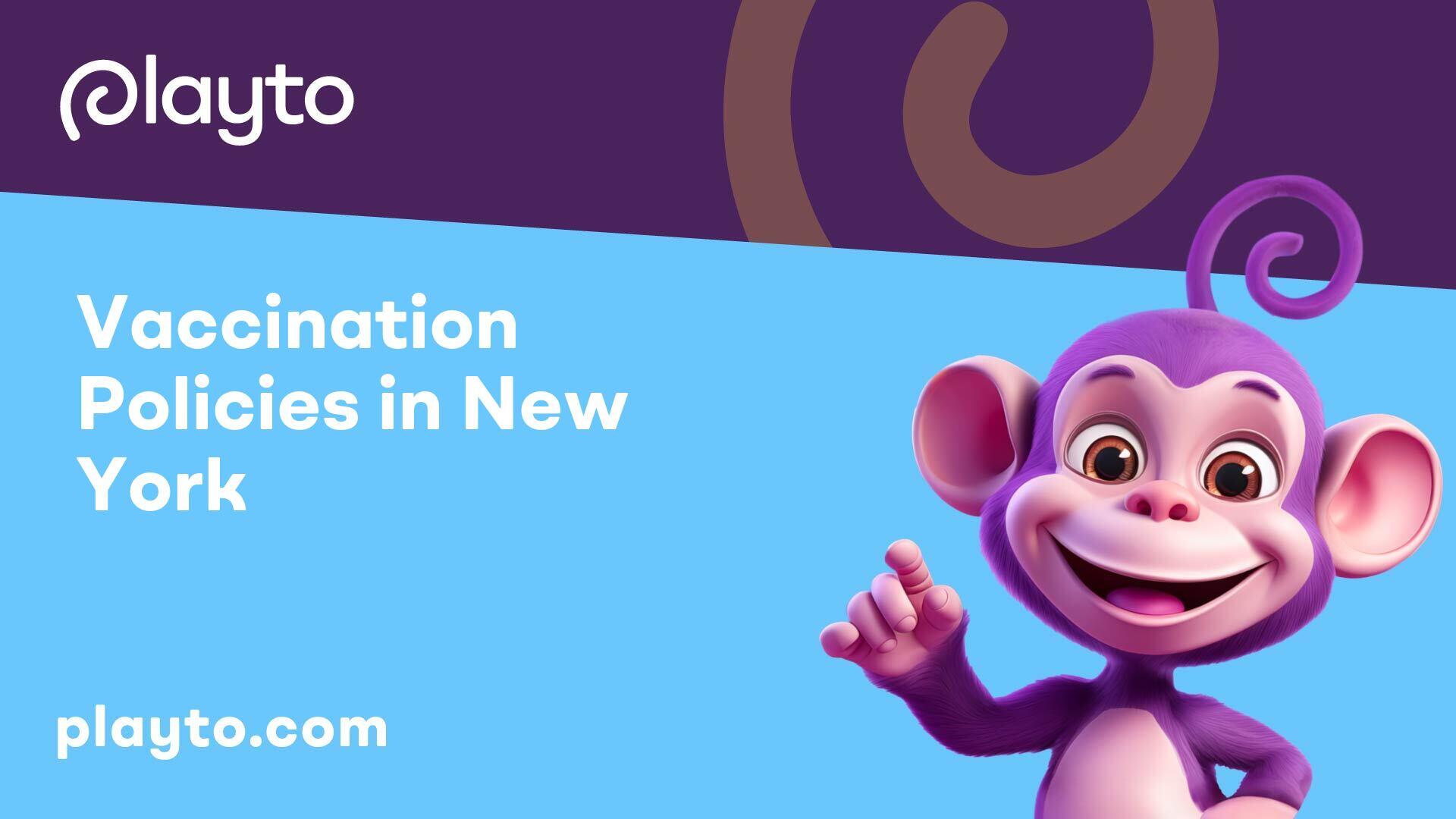
Vaccination Policies in New York
When it comes to ensuring the health and safety of children in New York, understanding the state's immunization requirements and exemptions is crucial. These policies not only impact children attending daycare facilities but also play a significant role in safeguarding public health.
New York's Immunization Requirements
New York, like all states in the United States, mandates that children receive certain vaccinations before enrollment in daycare facilities and schools. The specific immunization requirements in New York are outlined by the state's Department of Health and typically include vaccines for diseases such as measles, mumps, rubella, polio, and others.
Ensuring that children receive these vaccinations helps prevent the spread of infectious diseases within daycare settings and the broader community. By adhering to the state's immunization requirements, parents and caregivers contribute to the overall health and well-being of all children attending daycare in New York.
Exemptions for Immunization
While vaccination is a crucial public health measure, New York, like many states, allows for certain exemptions from immunization requirements. These exemptions may include medical exemptions for children who cannot safely receive vaccines due to underlying health conditions. Additionally, New York may grant exemptions for individuals with religious beliefs or philosophical objections against immunizations.
It is important to note that exemptions from vaccination requirements can impact the overall immunity of the population, particularly in daycare settings where young children congregate. Understanding the reasons for exemptions and their potential implications is essential for policymakers, healthcare professionals, and parents alike.
By examining both the immunization requirements and exemptions in New York, stakeholders can work together to create a safe and healthy environment for children in daycare facilities. Maintaining high vaccination rates and promoting awareness of the importance of immunizations can help protect children from preventable diseases and promote the well-being of the community at large.
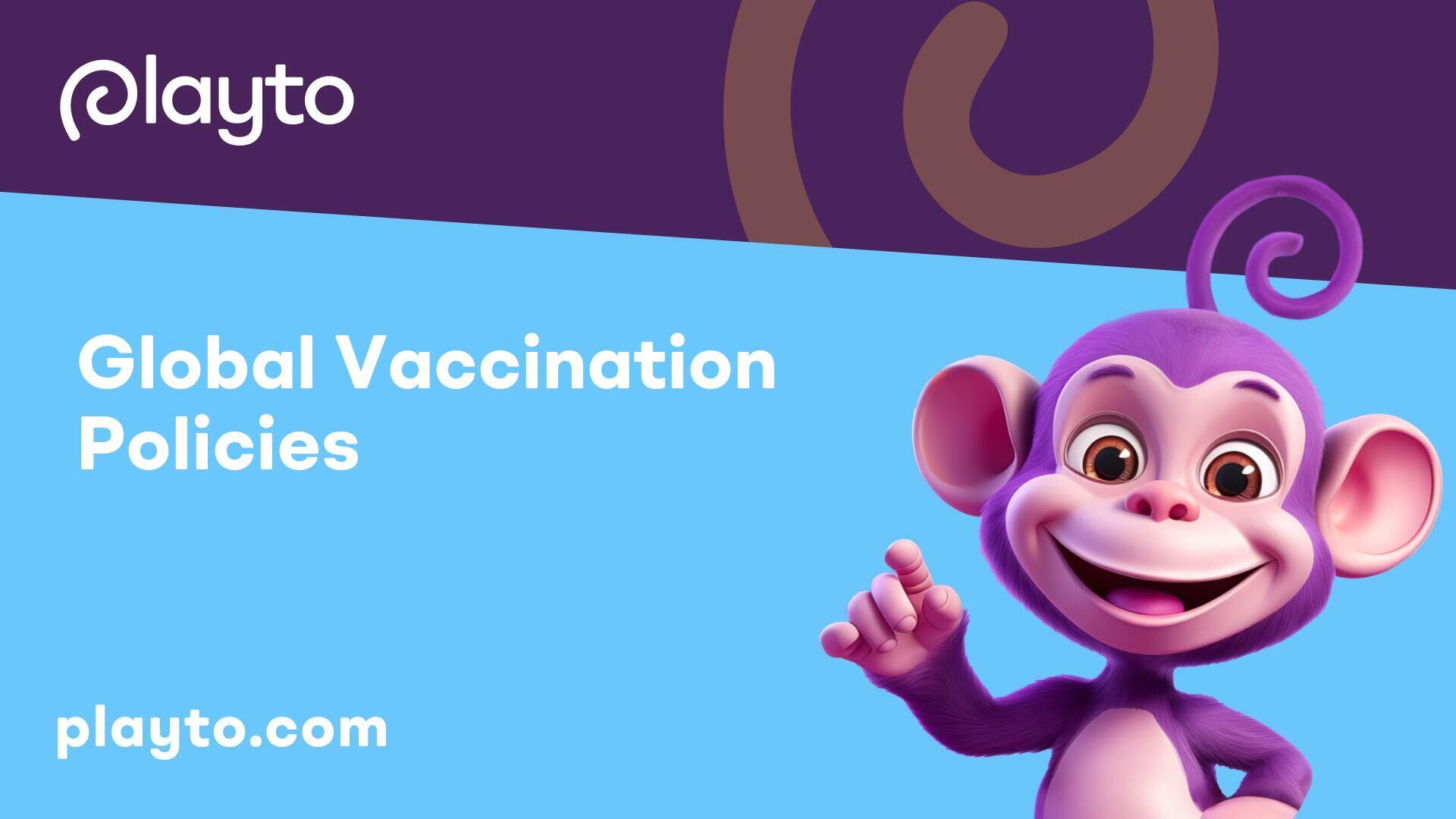
Global Vaccination Policies
The global landscape of vaccination policies showcases diverse approaches that nations undertake to safeguard public health, especially concerning childhood immunization. These policies, which range from voluntary to mandatory, play a pivotal role in reducing child morbidity and mortality rates worldwide.
Impact of Mandatory Vaccination Policies
Countries that have implemented mandatory vaccination policies have witnessed significant positive impacts on public health outcomes. Mandatory vaccination requirements, often tied to school entry regulations, ensure high vaccination coverage rates among children, thereby creating herd immunity and minimizing the spread of vaccine-preventable diseases. This has been instrumental in curbing outbreaks and reducing the burden of infectious diseases on healthcare systems.
Recent outbreaks of diseases like measles have spurred several European countries, including Germany, to enforce mandatory vaccination policies in response to public health emergencies [2]. These instances underscore the critical role of mandatory vaccination regulations in containing contagious diseases and protecting vulnerable populations.
Country-Specific Vaccination Approaches
Country-specific vaccination approaches vary widely, reflecting the unique socio-political contexts and healthcare systems of each nation. In the Americas region, a majority of countries - 29 out of 35 - have adopted mandatory vaccination policies to ensure widespread immunization coverage among children. Similarly, in the United States, vaccination regulations differ across individual states but uniformly require vaccinations for school entry.
Conversely, Canada exhibits distinct vaccination practices, with only three provinces enforcing legislated mandatory vaccination policies, showcasing regional disparities within a single nation. Lower-income countries often resort to mandatory vaccination laws due to limited policy alternatives and systemic challenges in vaccine supply and accessibility.
Belgium provides a notable example of a country with a longstanding mandatory vaccination policy for diseases like polio, dating back to 1967. Children in Belgium must receive vaccinations before the age of 18 months to maintain high vaccination coverage rates. Despite the stringent regulations, certain populations, such as migrant Roma communities, may exhibit reluctance towards mandatory vaccination without facing severe repercussions.
By examining the diverse vaccination approaches adopted globally, policymakers can glean insights into effective strategies for promoting immunization uptake and ensuring public health resilience against infectious diseases. These policies underscore the collective responsibility of nations in safeguarding community well-being through comprehensive vaccination initiatives.

Science Behind Vaccination
When it comes to infant immunization and daycare policies, understanding the safety and efficacy of vaccines is essential. Vaccines are arguably one of the safest and most thoroughly tested products that individuals introduce into their bodies. The decision to not vaccinate poses a different and potentially more serious risk as vaccines are crucial for disease prevention.
Safety and Efficacy of Vaccines
The science behind vaccines underscores their safety and efficacy. Vaccines undergo rigorous testing processes before being approved for use. Vaccines work by stimulating the immune system to produce an immune response without causing the disease itself. This enables the body to recognize and fight specific pathogens, thereby providing immunity against future infections.
Vaccinating on schedule is crucial in ensuring protection against preventable diseases like measles, polio, and pertussis. The benefits of vaccination extend not only to the individual but also to the community through herd immunity. By vaccinating, individuals contribute to the overall protection of those who cannot be vaccinated due to medical reasons or age.
Facts vs. Misconceptions on Vaccination
Misconceptions surrounding vaccination can create unnecessary concerns and lead to vaccine hesitancy. It is vital to address misconceptions with factual information about the safety and importance of vaccines. Choosing not to vaccinate can increase the risk of contracting vaccine-preventable diseases and contribute to outbreaks in communities.
Despite concerns about vaccine safety, it is important to note that immunization coverage among children entering kindergarten exceeds 90 percent for most recommended vaccines. Delays or refusals in immunization have been linked to outbreaks of diseases such as measles and pertussis in areas with higher numbers of unvaccinated individuals.
Healthcare providers, public health officials, and policymakers consider the childhood immunization schedule as one of the most effective and safest public health interventions to prevent serious diseases and deaths. It is crucial to trust in the scientific evidence behind vaccines and follow recommended immunization schedules to safeguard individual and public health.
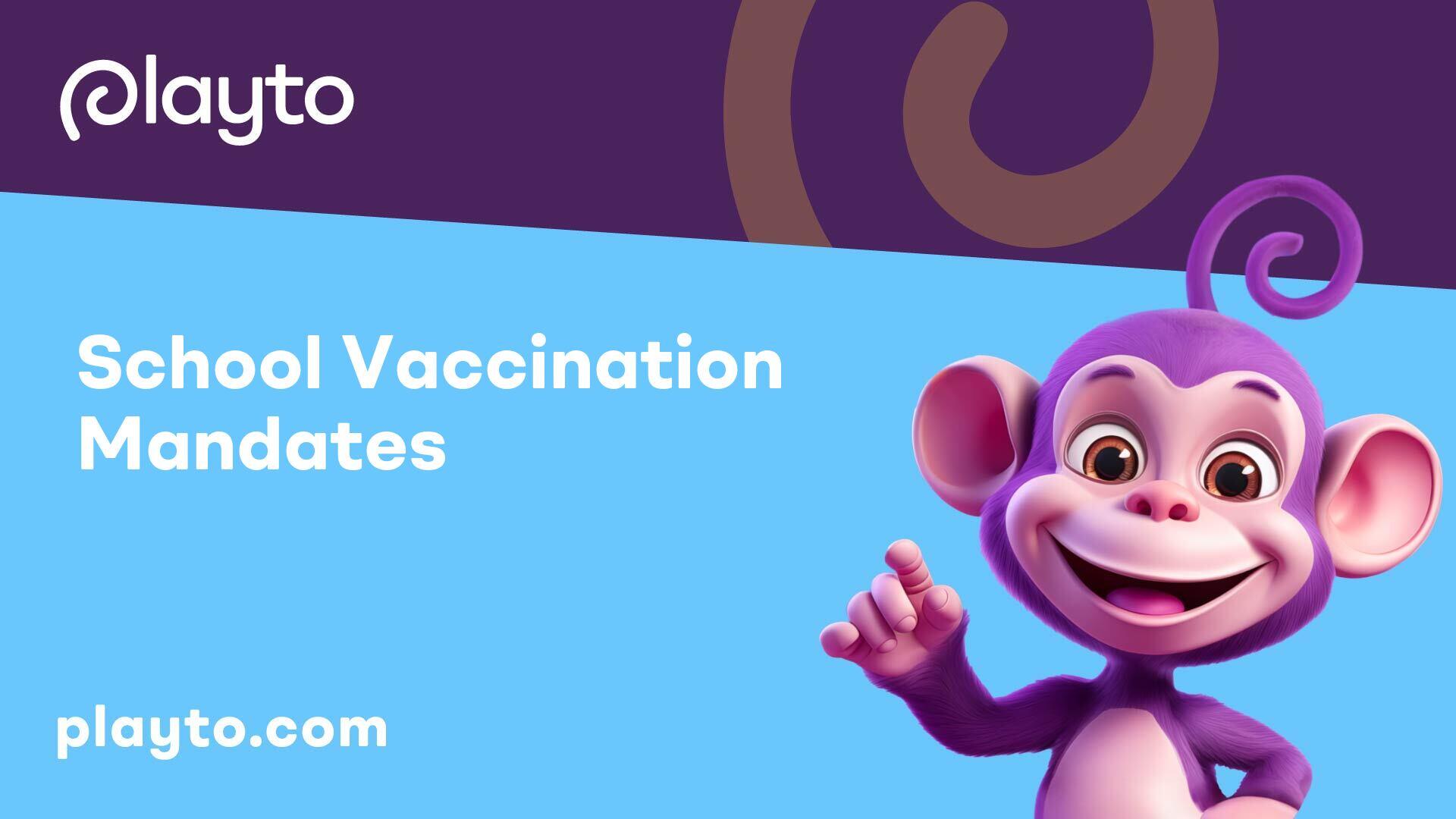
School Vaccination Mandates
When exploring infant immunization and daycare policies, it's crucial to understand the effectiveness and implications of school vaccination mandates. These mandates play a significant role in regulating vaccination requirements for children attending school settings.
Effectiveness of School Mandates
Research findings, as highlighted by studies analyzed on vaccination mandates, reveal a positive correlation between mandate policies and increased vaccination coverage, particularly in areas with low preintervention vaccination rates. By implementing strict vaccination mandates, schools can ensure a higher percentage of students are immunized, which not only protects individual students but also contributes to the overall community immunity.
Data also suggests that legislative mandates for vaccines (excluding human papillomavirus) have been associated with elevated vaccine coverage rates post-implementation. These findings underscore the efficacy of school mandate policies in promoting widespread immunization and reducing the risk of vaccine-preventable diseases.
Implications of Mandate Policies
Immunization coverage among children entering kindergarten in the United States typically exceeds 90% for most recommended vaccines. However, concerns regarding vaccine safety have led to delays or refusals of immunization, resulting in pockets of unimmunized children and potential outbreaks of preventable illnesses in certain areas.
It is important to note that variations in state-specific vaccination regulations contribute to differing exemption rates across the country. For example, states like Mississippi and West Virginia only permit medical exemptions, leading to lower overall exemption rates compared to states with broader exemption criteria [5]. These variations highlight the impact of mandate policies on vaccination compliance and overall public health outcomes.
As policies surrounding school vaccination mandates continue to evolve, ongoing research and monitoring are essential to assess the long-term effectiveness and implications of these regulations. By emphasizing the importance of vaccination mandates in school settings, authorities can promote a safer and healthier environment for children and communities alike.
Health Outcomes and Immunization
In the realm of infant daycare, understanding the implications of the immunization schedule and the safety research methods associated with vaccines is crucial for ensuring the well-being of young children.
Studying the Immunization Schedule
Research into the impact of the immunization schedule on health outcomes is ongoing and essential. While comprehensive studies assessing the entire schedule's association with varying health outcomes are limited, existing research focuses on monitoring immunization safety and studying potential adverse events through sources like the Vaccine Safety Datalink (VSD), a collaborative effort between the CDC and managed care organizations.
Due to restrictions on direct comparisons between entirely unimmunized children and fully immunized children, data analyses play a critical role in assessing the safety and efficacy of immunization schedules. The VSD database provides a valuable resource for tracking and assessing the impact of vaccines on different health outcomes, ensuring that vaccination policies are based on scientific evidence.
Vaccine Safety Research Methods
Vaccine safety is a top priority for healthcare providers, public health officials, and policymakers, given the critical role of childhood immunization schedules in preventing severe diseases and fatalities. Despite concerns raised by some parents regarding the timing and number of vaccinations within the schedule, healthcare experts emphasize the importance of adhering to immunization guidelines for effective disease prevention.
While immunization coverage among children entering kindergarten is generally high, exceeding 90% for most recommended vaccines, there has been an increase in vaccine hesitancy leading to delays or refusals of immunization. This trend has contributed to the resurgence of vaccine-preventable diseases like measles and pertussis in communities with higher rates of unimmunized children.
Acknowledging the significance of the childhood immunization schedule and its impact on population health, ongoing research efforts aim to address safety concerns, optimize vaccination strategies, and promote informed decision-making regarding infant immunization in daycare settings. By leveraging data-driven insights and safety monitoring systems, healthcare professionals can continue to uphold the integrity and effectiveness of vaccination programs, safeguarding the health of children in daycare environments.
State-Specific Vaccination Regulations
When it comes to infant immunization and daycare policies, understanding the variations in state policies and exemption processes is crucial for both parents and daycare providers. Each state in the U.S. has its own regulations regarding vaccination requirements for children attending daycare and school. Let's delve into the specifics of state-specific vaccination regulations:
Variations in State Policies
As highlighted by the National Library of Medicine, every state in the U.S. mandates that children must be vaccinated before enrolling in school, but the degree of allowed exemptions varies. Mississippi and West Virginia have some of the strictest policies, allowing only medical exemptions. On the contrary, other states permit exemptions for medical, religious, and philosophical reasons.
Across the country, different states have varying processes for obtaining exemptions from vaccination requirements. These variations lead to differences in exemption rates among states. It's essential for parents to familiarize themselves with the regulations in their state to ensure compliance with vaccination requirements while understanding the available exemptions.
Exemption Processes and Rates
Despite the necessity for children to be immunized to attend school and daycare, medical exemptions are generally allowed in all states. Additionally, almost all states provide exemptions for individuals with religious beliefs against vaccinations. Furthermore, 20 states permit exemptions for those who object to immunizations based on personal, moral, or other beliefs.
The process for obtaining exemptions can vary widely from state to state, impacting the overall exemption rates within each region. Parents should be aware of the specific procedures and requirements for exemptions in their state, ensuring they have the necessary documentation if choosing to opt-out of certain vaccinations for their child.
Understanding state-specific vaccination regulations empowers parents and daycare providers to navigate the complex landscape of immunization requirements. By staying informed about the policies in their state, individuals can make informed decisions regarding vaccination for their children while adhering to the regulations set forth by local authorities.
Incentive Programs and Policies
Exploring the landscape of infant immunization and daycare policies reveals various strategies employed by different countries to encourage vaccination among young children. Two key approaches include financial incentives for vaccination and compulsory vaccination measures, as seen in Australia.
Financial Incentives for Vaccination
Financial incentives can serve as a powerful motivator for parents to ensure their children receive timely vaccinations. In Australia, the government offers nontaxable payments for each child aged 18–24 months and 4–5 years who meets immunization requirements. This incentivizes parents to adhere to the recommended vaccination schedule and protect their children from preventable diseases.
By providing financial incentives for vaccination, governments aim to increase immunization rates, safeguard public health, and reduce the economic burden associated with vaccine-preventable diseases. These incentives not only benefit individual families but also contribute to the overall health and well-being of the community.
Australia's Compulsory Vaccination Measures
While vaccination is not compulsory in Australia, the government has implemented measures to address vaccine hesitancy and ensure high immunization coverage. In cases of disease outbreaks, unvaccinated students may be excluded from school to prevent the spread of infectious diseases. This policy encourages parents to prioritize vaccination to avoid disruptions in their children's education and potential health risks during outbreaks.
Australia's approach balances individual freedoms with public health interests by leveraging compulsory exclusion from school during outbreaks as a measure to emphasize the importance of vaccination. By reinforcing the consequences of non-vaccination, the government aims to create a safer environment for all children, whether in daycare settings or educational institutions.
Incentive programs and compulsory vaccination measures play a pivotal role in promoting infant immunization and shaping daycare policies. By combining financial incentives with regulatory measures, governments can effectively encourage vaccination uptake, protect vulnerable populations, and build a more resilient healthcare system.
References
[1]: https://www.chop.edu/vaccine-education-center/vaccine-schedule/altering-the-schedule
[2]: https://ourworldindata.org/childhood-vaccination-policies
[3]: https://www.ncbi.nlm.nih.gov/books/NBK206938/
